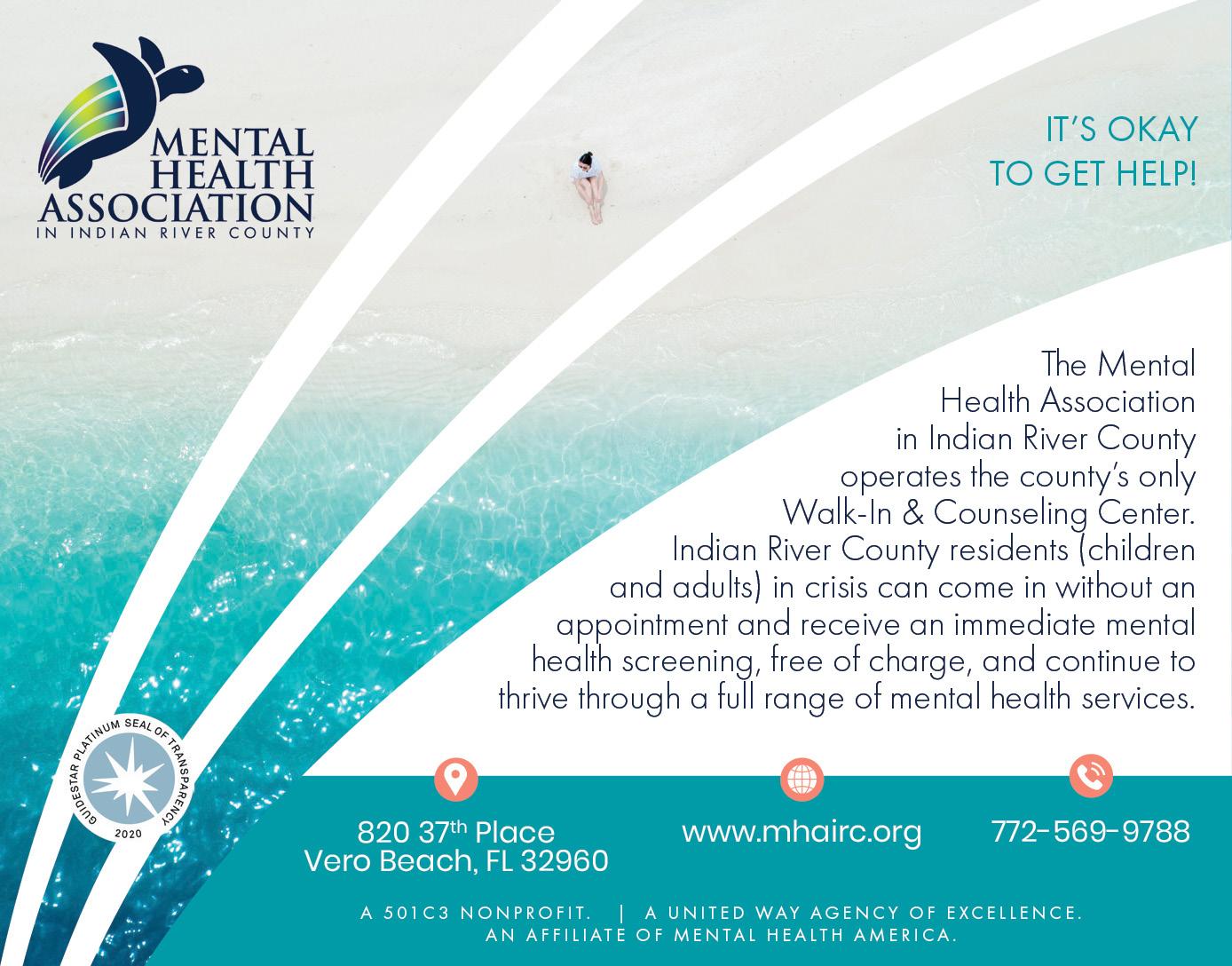
2 minute read
Tides Turning for Turtles
2020 TreasUre CoasT nesTing nUmBers
Advertisement
(Ecological Associates Inc.)
Did you know that roughly 90 percent of sea turtle nesting happens on Florida beaches? And here on the Treasure Coast, roughly 35 miles of our beaches are critical nesting sites for three of the worlds seven species of sea turtles. Green and Loggerhead turtles are considered threatened and Leatherback turtles are endangered. But our stretch of coastline has been good to turtles and over the last few years their numbers have increased dramatically.
Last year both Green and Leatherback nesting nearly doubled in numbers in all three Treasure Coast counties. Loggerheads are the most prolific nesters in our area and still surpassed the previous year’s numbers only halfway through the 2020 season.
Some think that the temporary beach closures last summer may have encouraged the numbers. While it’s true that there was less human interference on the beaches at the time, it’s unlikely to have had much to do with overall nesting increases other than a temporary boost. Sea turtles take up to 30 years to mature so what we are seeing is more likely an indicator of world-wide conservation efforts and awareness.
Nesting season on the Treasure Coast typically runs from March through October. Yet the first nest last year was laid by a leatherback in early February near Stuart on South Hutchinson Island, the earliest nest on record in the state according to the Florida Fish and Wildlife Conservation Commission. Turtles don’t lay eggs every year so nesting seasons have on and off years. Last year was predicted to be an off year yet it still broke several records. That’s good news as we look forward to what this season will look like.
Do your part to make 2021 a great year for turtles!
• Turn off the lights on beach facing property so hatchlings don’t lose their way. • Never approach or interfere with a turtle, especially at night or in the early morning hours (leave your flashlights and cameras at home). • Don’t dig holes or drive umbrellas into the sand anywhere near a marked nest. • Fill in holes, knock down sand castles etc. before you leave the beach. • Leave nothing on the beach but your footprints. • If you see nesting turtles or hatchlings that appear to be struggling, call the
FWC hotline at 888-404-3922.













